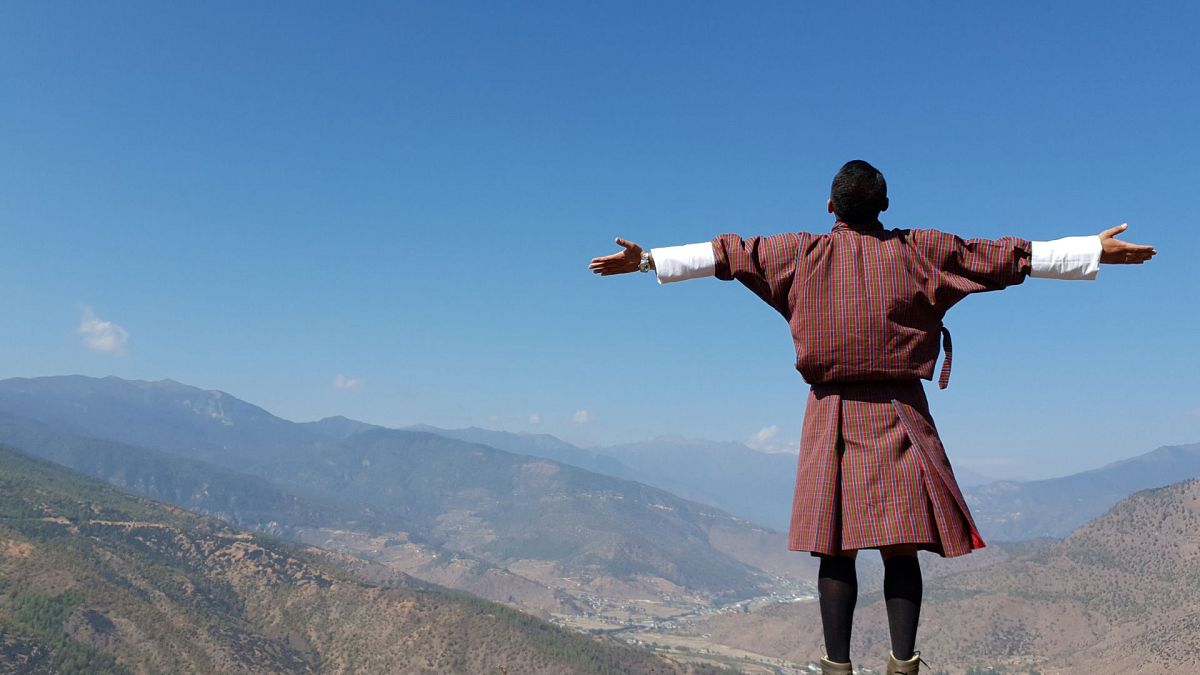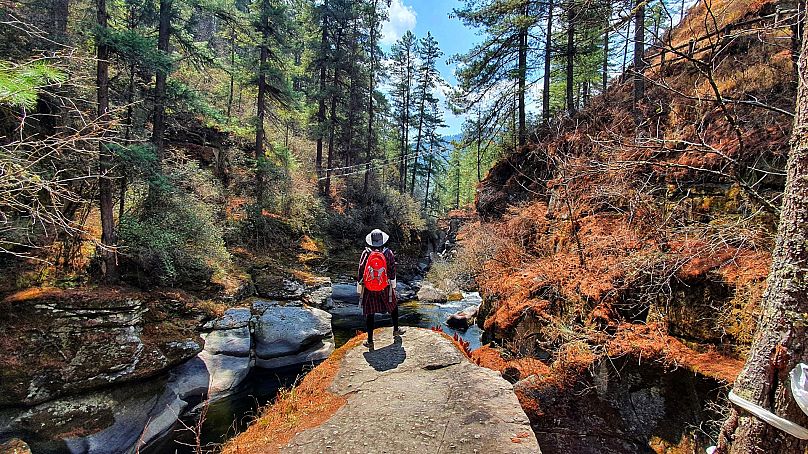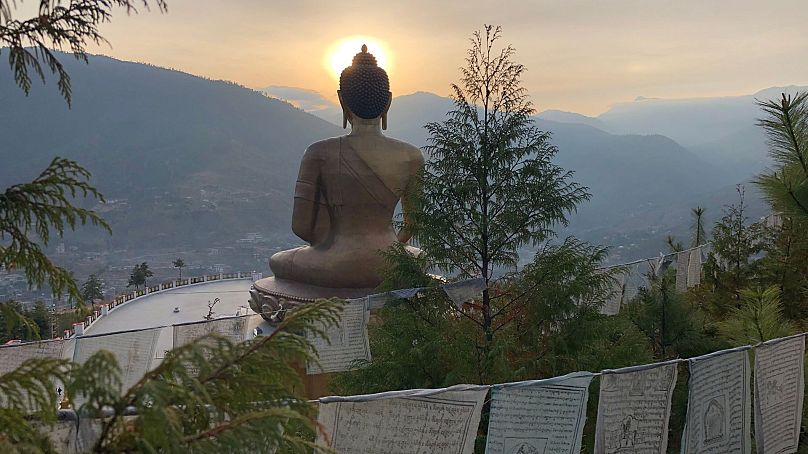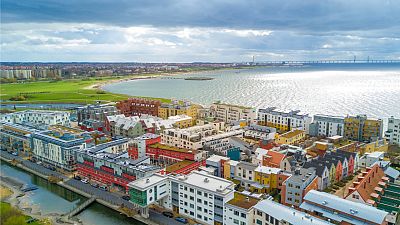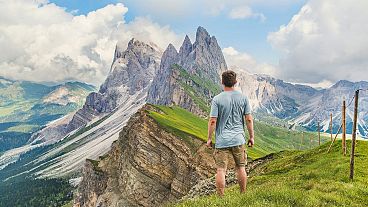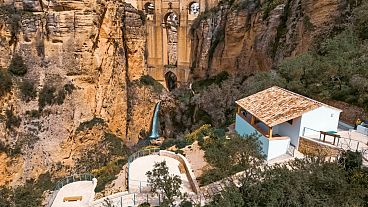The nation has slashed its notoriously high 'sustainable development' fees - but its eco philosophy remains.
Wedged between India and Tibet, the tiny mountain nation of Bhutan has flown under the radar of mass tourism for decades.
That’s partly because the Himalayan kingdom has a unique ethos towards visitors. When this isolated country finally opened to tourists in 1974, it adopted a ‘high value, low impact’ policy.
It means there are strict controls on how visitors travel in Bhutan - including how much it costs and how many people can visit each year.
As of this month, those costs will be significantly lower. Here's why.
How much does it cost to visit Bhutan?
Bhutan deliberately sets high daily visitor fees to ensure it never receives more tourists than its population of 700,000 can handle.
Before the pandemic, visitors were required to join an all-inclusive organised tour costing $200-250 (€183-229) per day, which included a $65 (€60) 'Sustainable Development Fee'.
Although pre-pandemic annual visitor numbers to Bhutan were on the rise, the country has never had more than 315,000 tourists a year. Compare this to its neighbour Nepal, a similar country in culture and topography, which received more than 1 million tourists in 2019.
When the country reopened in September 2022 after a two-year COVID-induced closure, the requirement to join a tour was dropped but the daily Sustainable Development Fee was raised to $200 per day. This does not cover travel costs such as food, transport and hotels.
The funds are used to reduce the impact of tourism on the country and support conservation and sustainability projects.
In a bid to boost visitor numbers, the country is now lowering these costs. Tourists paying the daily fee for four days are now allowed to stay for four additional days fee-free. And those paying 12 days of fees are permitted to stay for a full month.
The new rules go into effect this month (June 2023) until the end of 2024. There is a slight catch - the lower rates are only available to those who pay in US dollars, not rupees.
Ruled by principles of Buddhism rather than business, Bhutan is a country that prioritises Gross National Happiness over Gross Domestic Product. And this idea filters down into every aspect of tourism.
To date, Bhutan is also the only carbon negative country in the world.
Here's why green-minded travellers should take advantage of Bhutan's reduced visitor fees in 2023.
The environment is king in Bhutan
Environmental conservation is one of the four pillars of Bhutan’s Gross National Happiness philosophy, recognising the importance of nature for its citizens’ wellbeing.
Landscape protection is written into the constitution. It is mandated that at least 60 per cent of Bhutan’s land must be covered in forest at all times – and WWF says Bhutan has consistently achieved this. At the moment, forest coverage is around 70 per cent.
Overall, more than 50 per cent of the country is protected. This is the largest percentage of any Asian country, according to WWF.
Between its high-altitude mountain peaks and alpine forest valleys, Bhutan has carved out a 5 million acre network of protected areas. Within these boundaries, native wildlife such as endangered royal Bengal tigers, snow leopards and elephants are thriving.
“The people of this Buddhist kingdom can hold on to a fundamental birthright: living out life in a healthy environment,” says WWF.
People are the heart of the Kingdom of Bhutan
Bhutan’s Gross National Happiness philosophy flies in the face of widely accepted global economic principles.
Instead of focusing on material development, the kingdom has a long-held belief that national development should be based on how happy and prosperous its people are. This also applies to tourism, which is designed to benefit local people.
The Trans Bhutan Trail is a good example of community-based tourism. This historic cross-country pilgrimage trail has recently been restored not just for tourists, but also to reconnect remote, rural communities.
The new long-distance trekking route is intended to promote cultural exchange, while helping remote communities reap the economic benefits of tourism.
The non-profit sustainable tourism enterprise behind the trail is also working in partnership with local schools, scout groups and Bhutan’s National Youth Service to provide education opportunities in areas such as flora and fauna, low-impact trekking, first aid and cultural history, for the communities along the path.
Personality is key to Bhutan's culture
The Bhutanese see tourism as a cultural exchange. Rather than allowing an industry that dilutes local culture to satisfy foreign tastes, Bhutan has structured its tourism development to immerse foreigners in the country’s culture and traditions.
Bhutan is proud of its Buddhist history and tribal communities, and the tourism industry is engineered to open a fascinating window onto locals’ lives. Visitors are even encouraged to wear the kingdom’s traditional costumes, the gho and kira.
And it’s a country with its own unique quirks too. Bhutan’s king trekked through jungles and up mountains to oversee COVID measures during the pandemic.
Visitors can try archery, one of the national pastimes. And it is notorious for its phallic art, a custom that dates back centuries but is fully embraced by present-day Bhutan.
It is also the only country in the world without any traffic lights. Rumour has it that they were deemed too impersonal.
Even now, in the 21st century, the junctions of the capital Thimpu are staffed by a police officer.
